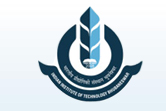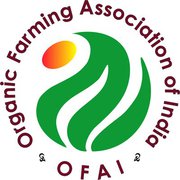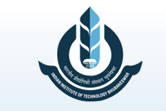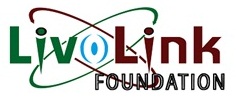/regions/orissa
Orissa
School of Earth, Ocean and Climate Sciences, Indian Institute of Technology (IIT) invites applications faculty positions at the level of Professor, Associate Professor and Assistant Professor, Bhubaneswar
Posted on 02 Aug, 2012 04:17 PMIndian Institute of Technology Bhubaneswar came into existence in July 22, 2008, inheriting the brand name IIT. This fact itself charges the Institute not only to be worthy of its inheritance but also to be distinctive and distinguished on its own by scripting a path towards novelties. Presented below are the statements for Vision, Mission, Goals & Strategies (to achieve the Goals) and the Core Values of IIT Bhubaneswar.
Qualification
Ph.D. with first class or equivalent in the preceding degree in appropriate branch with a very good academic
Specialization
Physical Meteorology, Climate modeling, Air-Sea Interaction, Ocean Modeling, Physical Oceanography (with observational experience), Oceanographic/Meteorological Instrumentation (with observational experience), Remote Sensing and GIS (related to Ocean & Atmosphere)

Factors affecting the successful implementation of the water and sanitation initiatives - Case studies from different parts of the country and lessons learnt
Posted on 19 Jul, 2012 04:49 PM1. Critical investments for 24x7 water supply: Lessons from Ramachandrapuram village in Karimnagar district, Andhra Pradesh
Fixed deposits of grain turn to gold
Posted on 19 Jul, 2012 07:55 AMVillagers in one of the poorest districts in the country were caught up in a vicious cycle of starvation, debt and human bondage until the arrival of a social activist, Bidyut Mohanty, changed their lives.
Tenda, a traditional system to draw water from open wells that is still practiced even today in Chattisgarh and Odisha
Posted on 05 Jun, 2012 10:00 PMBiennial convention 2012, Organic Farming Association of India, November 5-6, 2012, Bhubaneshwar
Posted on 04 Jun, 2012 10:58 AMOrganiser: Organic Farming Association of India (OFAI)
Venue: Bhubaneshwar, Odisha

National workshop on "Environmental Impact Assessment: Issues, Challenges, and Policy Implications in India", HSS&M, June 9-10, 2012, IIT Bhubaneswar
Posted on 06 Apr, 2012 08:27 PMOrganizers: School of Humanities, Social Sciences & Management (HSS&M)
Venue: Indian Institute of Technology Bhubaneswar (IITBBS)
Institute auditorium, Samantapuri,
Samantapuri, Bhubaneswar-751013

Description:
HSS&M of IITBBS is organizing a Workshop on "Environmental Impact Assessment: Issues, Challenges, and Policy Implications in India” (EIA-2012) during June 9-10, 2012. We look forward to your participation and support in making this workshop a success.
Peace by peace cotton project' is bucking the trend in chemical farming to revive cotton fields in Odisha
Posted on 17 Mar, 2012 11:02 PMArticle and Image Courtesy : One World South Asia
Author : Madhusmita Hazarika
RCDC invites applications for Expert, Land & Water Conservation, Orissa - Apply by February 15, 2012
Posted on 15 Feb, 2012 09:50 AMContent courtesy: DevNetJobsIndia

Regional Centre for Development Cooperation (RCDC) is a not for profit making organisation having its head office in Bhubaneswar promotes community based natural resources management for poverty reduction and has been primarily operating in Odisha since 1993. The activities of RCDC include; research and documentation, publications, advocacy and networking and direct filed intervention in 14 districts.
Training on 'Organic and Natural farming', SARRA, SAMBHAV & XIMB, Feb.7-11, 2012, Bhubaneswar
Posted on 02 Feb, 2012 12:51 PMOrganizers: South Asia Rural Reconstruction Association (SARRA), Bangalore,
XIMB & SAMBHAV, Orissa
Venue: XIM Bhubaneswar and SAMBHAV Campus, at Rohibanka, Nayagarh District Orissa.

Description:
Almost 40% of the world’s poor are living in South Asia Region. Majority of the people depend on Agriculture.The sector is undergoing an irreparable loss through excess use of chemical fertilizer and pesticides imposed by the national governments through its green revolution technologies. It is characterized by mono-cropping, heavy use of external inputs such as chemical fertilizers, Pesticides,use of machinery and exploitation of irrigationresources, although GRT produced good results in the initial stages. Currently farmers are experiencing critical problems for continued production and productivity of crops due to Soil and water degradation. Chemically used food products have lost the place in the Global market. Our much inherited ecology and bio-diversity is at a stake and getting endangered.
